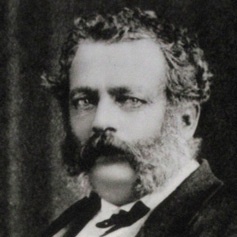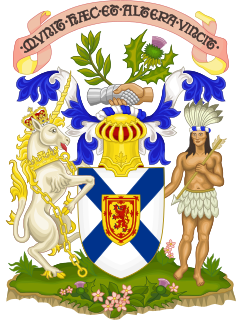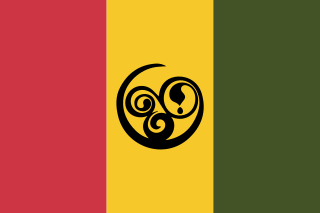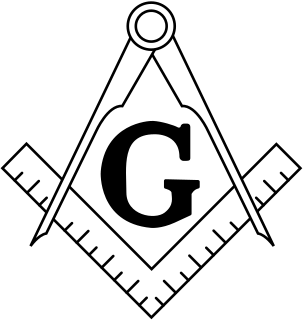
Hiram Blanchard was a Nova Scotia lawyer, politician, and the first premier of Nova Scotia. Blanchard won election to the Nova Scotia legislative assembly in Inverness in 1859 as a Liberal.
Charles Hazlitt Cahan, was a Canadian lawyer, newspaper editor, businessman, and provincial and federal politician.

James Lorimer Ilsley, was a Canadian politician and jurist.

Edward Leonard Greenspan, was one of Canada's most famous defence lawyers, and a prolific author of legal volumes. His fame was owed to numerous high-profile clients and to his national exposure on the Canadian Broadcasting Corporation radio series The Scales of Justice (1982–94).
Roland Almon Ritchie, was a Canadian lawyer and puisne justice of the Supreme Court of Canada.

The Court of Appeal for Nova Scotia is the highest appeal court in the province of Nova Scotia, Canada. There are currently 8 judicial seats including one assigned to the Chief Justice of Nova Scotia. At any given time there may be one or more additional justices who sit as supernumerary justices. The court sits in Halifax, which is the capital of Nova Scotia. Cases are heard by a panel of three judges. They publish approximately 80 cases each year.

Sir Joseph Andrew Chisholm was Mayor of Halifax and Chief Justice of the Supreme Court of Nova Scotia.
Lorne O. Clarke, was a Canadian lawyer and Chief Justice of the Nova Scotia Supreme Court.

Edmund Leslie Newcombe, was a Canadian lawyer, civil servant, and Puisne Justice of the Supreme Court of Canada.

Viola Irene Desmond was a Canadian civil and women's rights activist and businesswoman of Black Nova Scotian descent. In 1946, she challenged racial segregation at a cinema in New Glasgow, Nova Scotia by refusing to leave a whites-only area of the Roseland Theatre. For this, she was convicted of a minor tax violation for the one-cent tax difference between the seat that she had paid for and the seat that she used, which was more expensive. Desmond's case is one of the most publicized incidents of racial discrimination in Canadian history and helped start the modern civil rights movement in Canada.

Sir Thomas Andrew Lumisden Strange was a chief justice in Nova Scotia, known for waging "judicial war" to free Black Nova Scotian slaves from their owners. From 1789 to 1797, he was the sixth Chief Justice of Nova Scotia. He became the first Chief Justice of the erstwhile Supreme Court of Madras and in that capacity was also the first Chief Justice of the Madras Presidency, British India from 1801 to 1817.
Constance Rachelle Glube, was the 21st Chief Justice of Nova Scotia and first female Chief Justice in Canada.

The Halifax Court House is a historic building in downtown Halifax, Nova Scotia. Its main section was completed in 1863, with the east wing, built in 1930, being the newest portion. The Italian renaissance style building was designed by William Thomas, a Toronto architect who built prominent structures across Canada, and built by George Lang.

Black Nova Scotians are Black Canadians whose ancestors primarily date back to the Colonial United States as slaves or freemen, later arriving in Nova Scotia, Canada, during the 18th and early 19th centuries. As of the 2016 Census of Canada, 21,915 Black people live in Nova Scotia, most in Halifax. Since the 1950s, numerous Black Nova Scotians have migrated to Toronto for its larger range of opportunities. Before the immigration reforms of 1967, Black Nova Scotians formed 37% of the total Black Canadian population.

Benjamin Russell was a Canadian lawyer, professor of law, judge, and politician in the province Nova Scotia.
William Lorimer Hall was a lawyer, judge and political figure in Nova Scotia, Canada. He presided over Viola Desmond's appeal. He represented Queen's County in the Nova Scotia House of Assembly as a Conservative member from 1910 to 1920 and from 1925 to 1931.
Lauchlin Daniel Currie was a lawyer, judge and political figure in Nova Scotia, Canada. He represented Cape Breton East from 1933 to 1941 and Richmond from 1941 to 1949 in the Nova Scotia House of Assembly as a Liberal member.

Freemasonry is a fraternal organisation that arose from the loose organization of medieval masons working in the medieval building industry.

The Roseland Theatre is a landmark theatre in New Glasgow, Nova Scotia. Originally built for silent films, it is one of the oldest movie theatre buildings in Nova Scotia but it is best known as the location of a human rights case involving Viola Desmond, who challenged racial segregation in 1946. It was converted from a movie theatre to the "Roseland Cabaret" nightclub in the 1990s and to office and retail space in 2015.

William Pearly Oliver worked at the Cornwallis Street Baptist Church for twenty-five years (1937–1962) and was instrumental in developing the four leading organizations to support Black Nova Scotians in the 20th century: Nova Scotia Association for the Advancement of Colored People (1945), the Nova Scotia Human Rights Commission (1967), the Black United Front (1969) and the Black Cultural Centre for Nova Scotia (1983). He was instrumental in supporting the case of Viola Desmond. Oliver was awarded the Order of Canada in 1984.














